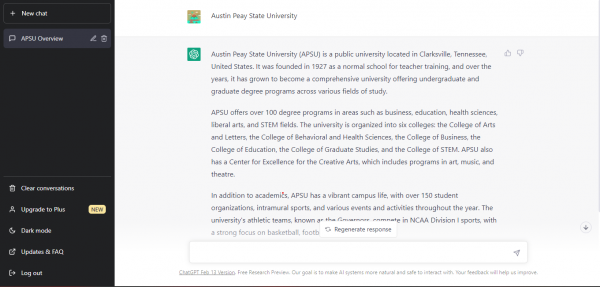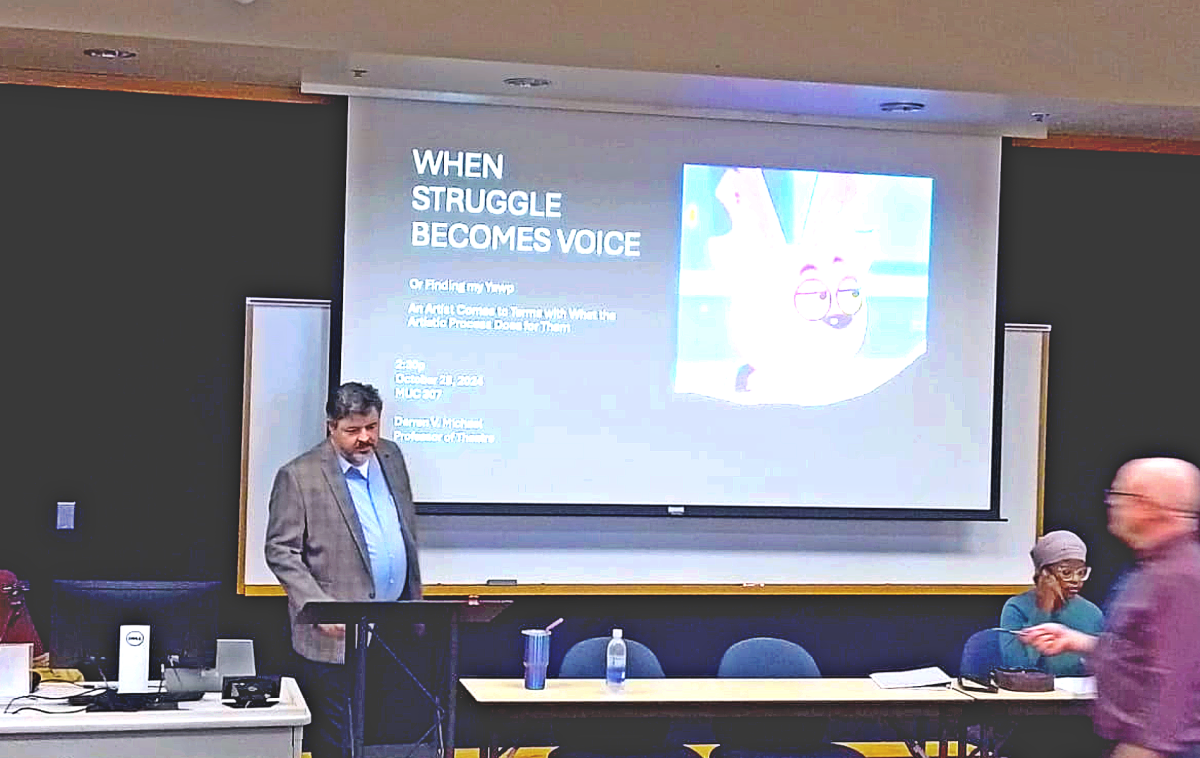
For the past 20 years, technology has become more and more advanced, consistently evolving and creating new areas of study. One of these ideas that have mainly developed in the last 10 years is that of artificial intelligence, most popular being ChatGPT.
Artificial Intelligence, or AI, is the theory and development of computer systems able to perform tasks that would otherwise require human intelligence.
Examples of AI include Apple’s Siri, Amazon’s Alexa, Google Home and more.
ChatGPT takes the form of an average chat room, waiting for the user to ask the AI a question or request and then responding to that request in a human-like way based on endless amounts of text data provided by the creators.
ChatGPT uses Natural language processing and machine learning to mimic how humans learn.
ChatGPT can write short papers given a simple prompt, solve complex math and science problems, answer almost any question, evaluate code, and discover issues.
While significant, it still suffers from some drawbacks, such as being unable to display images and having limited knowledge of events and occurrences after December 2021. Since it is not directly linked to the internet, it can not take in information widely.
As the world chugs forward, bigger and better technologies will be implemented into society, and AI fits into that category perfectly. As OpenAI continues to update, AI and other companies push their own AIs further than before; one can only wonder, what’s next?
PSA: this article was not written using ChatGPT.






